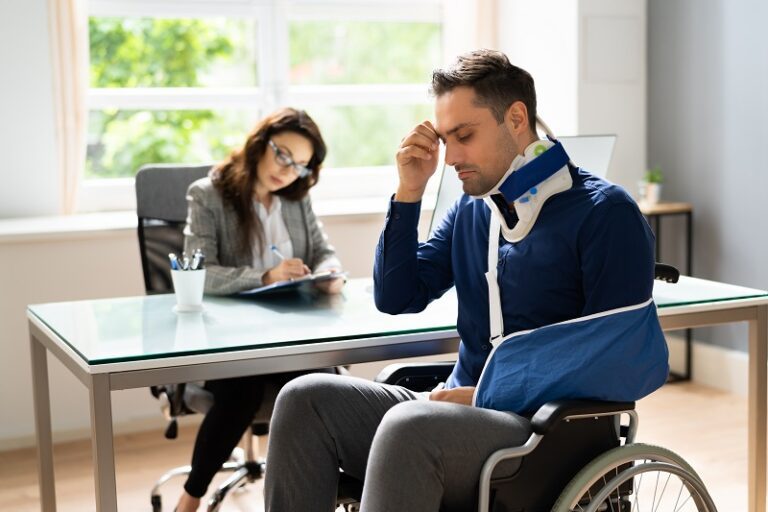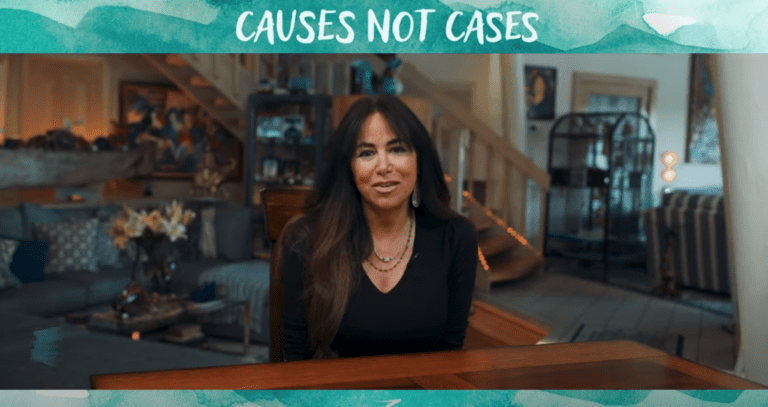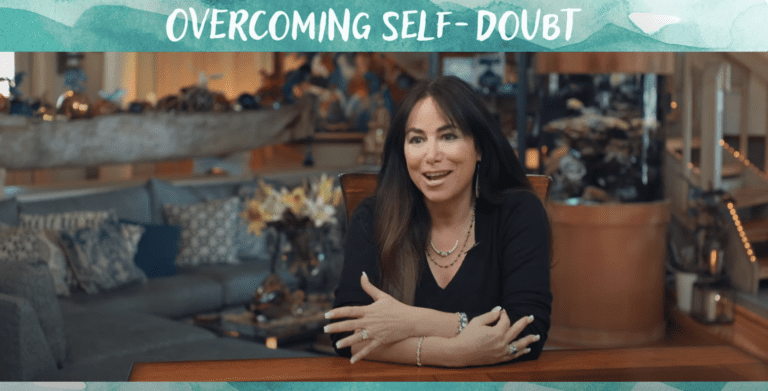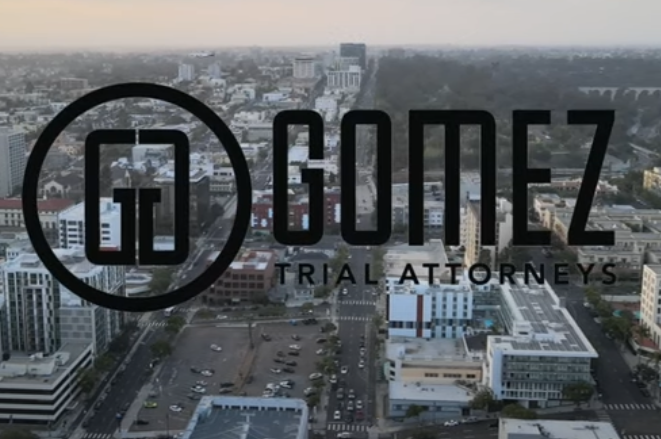More than 35,000 Americans died as a direct result of fatal motor vehicle crashes last year alone. Over 30,000 fatal crashes occur each year—and that’s 30,000 opportunities to leave behind a group of loved ones.
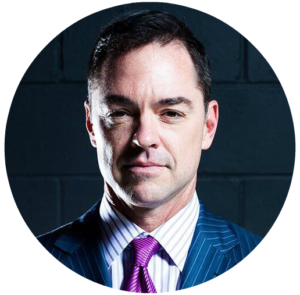
The time that follows a fatal accident is heart wrenching for surviving friends and family members of those lost. Most of us agree that the death of a loved one is one of the most painful experiences that we can live through. This can be compounded tenfold by insurance and other companies attempting to harass you, crippling bills or debt piling up due to lost wages, and a range of other factors.
The fortunate news is that the legal system provides an opportunity for individuals like this to obtain some reprieve. If you feel that your loved one was killed due to negligence or misconduct and you wish to pursue compensation to ease the stress of your loss, you have the right to do so. A wrongful death or car accident lawyer can assist you in collecting evidence, presenting your case, and achieving justice.
We have taken the time to compile a brief outline of the basics of what happens when someone dies in a car accident. This overview is by no means extensive, but it does offer insight into:
- Some of the most common causes of car accidents
- How to collect evidence for a case of this nature
- Recoverable damages
- Who (and who not) to speak to following an accident
If you find that you are left with unanswered questions after reading through this page, contact a qualified car accident attorney for more information. This is one way to determine where to begin the process of bringing your case and what damages you may recover.
[lwptoc]
Causes of Fatal Car Accidents
A car accident can happen for virtually any reason, and even the smallest factor can turn a non-fatal crash into a lethal experience. Facts like these are important to remember if you’re trying to educate yourself about what, exactly, makes a car accident fatal.
Some fatal car accidents qualify as cases of wrongful death. The reason for this is that all but a handful of fatal car accidents are, for all intents and purposes, preventable. Most car accident victims who suffer death during or after a crash lose their lives due to others’ overt negligence and carelessness on the road.
We’ve listed a handful of the most common causes of fatal car accidents below:
- Distracted driving | Distracted driving alone kills more than 3,000 Americans each year. It can feel difficult to understand what behaviors qualify as distracted driving, but it’s actually relatively simple. Many of us engage in the practice without recognizing it. Simple cognitive distractions like fiddling with the radio or turning to check on a child in the backseat are examples of distracted driving. So are texting or talking while driving and eating behind the wheel
- Road rage and/or aggressive driving | The differences between aggressive driving and road rage are of little importance once you’re actually driving near somebody exhibiting one or the other. Dangerous, risky, and emotionally charged-driving is always dangerous—regardless of what you call it. Excessive speeding or weaving through traffic, cutting off or blocking other drivers, and becoming obscene or threatening can all indicate road rage and aggressive driving
- Driving under the influence | Drivers should not partake in any substance that could alter their state of mind or behavior behind the wheel. Unfortunately, almost 30 people lose their lives to drivers who ignore these rules every day. Drugs and alcohol are the most commonly-mentioned substances that lead to driving under the influence, but even prescribed medication can have similar effects under the wrong circumstances
- Professional drivers’ misconduct | If you spend much time on the road, you’re probably familiar with the masses of corporate and other business vehicles that pass you by every day. Not only do these vehicles tend to be much bigger and heavier than passenger cars, but they require a great deal of care to operate safely. Even if an industrial vehicle’s driver behaves perfectly, the company who owns it could’ve been negligent in servicing or maintaining it
Remember: any car accident can turn fatal under certain conditions. The factors listed above have been noted to greatly increase the risk of a fatal crash, but do not form an extensive collection of potentially deadly crashes. Watch for behaviors like those above (or other concerning practices) while on the road. If you notice a driver behaving improperly or aggressively, it’s best to distance yourself from them and alert the authorities if you believe it is necessary.
Can I Still Seek Compensation if My Loved One Died After the Accident?
As long as evidence proves that your loved one passed away due to their car accident, you can pursue compensation for damages. Some people believe that a party must die immediately upon impact (or sometime during a crash) for these protections to apply to their loved ones. This is not the case.
Collecting Evidence
One step that survivors of a car accident victim should take is to gather evidence. This evidence should support the fact that your relationship to your loved one does, indeed, qualify you to engage in the legal process and the pursuit of compensation. You can also attempt to locate evidence that helps prove your loved one was killed due to another party’s misconduct or negligence.
Photographs, letters, calendar entries, and other similar notes or mementos can all help paint a picture of your relationship with your loved one. Remember: the law is entirely on your side. All you need to do is provide basic information that proves a handful of factors. In some cases, this process is relatively straightforward and could even be considered simple.
Some cases require more time, more thought, and more evidence. Never let this discourage you from your effort to seek justice. The right car accident attorney will work alongside you tirelessly to ensure that just compensation is received. If your case takes longer to begin than you hope, consider that the time and effort you’ve poured into it will only strengthen your efforts.
What Damages Can I Recover After a Car Accident Kills My Loved One?
You may feel that compensation is the last thing on your mind after losing somebody close to you—and that’s perfectly normal. Many of us couldn’t care less about collecting monetary damages when all we want is to see our loved ones again. Some families, however, may struggle with financial loss after a breadwinner loses their life in a crash. Others can’t even pay funeral or medical expenses without compensatory aid.
You and your loved ones deserve to feel financially secure in the harrowing time that follows the crash. Compensation in cases like these is available for a wide variety of physical, emotional, and monetary damages:
- Medical bills | This is, perhaps, one of the simplest expenses to pursue compensation for. You may be reimbursed for your loved one’s medical bills if he or she received care before their death. Many surviving family members are surprised to find out what sorts of medical bills qualify for reimbursement. Essential and basic costs, like physician’s appointments, are obviously one option. If your loved one required special care during attempted treatment, like physical therapy, these costs may also be recoverable.
- Funeral and burial expenses | The average American funeral costs $10,000, and it doesn’t take long looking at financial statistics to see that the average American family cannot afford one. This is one reason why the law allows decedent’s loved ones to pursue compensation to account for funeral and burial expenses.
- Loss of companionship | Of course, when somebody close to us dies, we lose much more than the funds that we sacrifice to supplement their healthcare or funeral expenses. Many of us lose the sense of love and companionship that humans rely on for survival. No amount of financial compensation will ever make up for your loss, but some compensation can help you account for new factors that could further mitigate your healing.
- Loss of financial resources | Sometimes, the individuals who lose their lives in car accidents leave their families behind with two holes. One is simply the lack of presence of that individual. The other, however, can be financial—and significant. If a primary or secondary earner for a household dies in a car accident, it can be difficult to face normal household expenses alone. That’s why you can pursue compensation to account for loss of financial resources after a crash.
A range of other expenses and emotional damages can also be compensated. Physical damage dealt to the decedent’s vehicle, for example, could be recoverable under many circumstances. Your car accident or wrongful death attorney may inform you of what damages that you, personally, should pursue.
Some of us may feel shame or discomfort surrounding the concept of pursuing monetary compensation after the death of a loved one. Whilst these feelings are typical and expected, it’s important to toss aside societal viewpoints and think about your own wellbeing. There is no justice in suffering in silence—without help—once your loved one is gone. You deserve support, and often that extends to include financial support as well.
Insurance Adjusters Are Not Trying to Help
If at all possible, never speak to an insurance adjuster throughout the legal process. The unfortunate reality is that insurance companies aggressively pursue anybody that they feel could further their cause after an accident. Oftentimes, this party is the accident victim themselves. After an accident in which someone dies, that party could be you or another loved one.
This, of course, is absurd. You and your family deserve the time and space to heal after the loss of someone close to you. Insurance companies have little regard for this. There is a possibility that an insurance adjuster may try to contact you or someone else close to your loved one after their death. The insurance adjuster is not trying to help. Avoid speaking with them—at least until you’ve partnered with a compassionate and well-intentioned wrongful death or car accident injury attorney.
Many of our clients approach our team in fear because they’ve already spoken to an adjuster before meeting with us. Unfortunately, this is common. The general public is not always informed of how risky speaking with these corporations unrepresented can be. As long as you haven’t agreed to any settlement or signed any other agreements, there’s likely no need for serious concern.
Don’t forget—if your loved one was killed a crash that involved any sort of company vehicle or driver, representatives from that organization may reach out to you as well. Treat them as you would treat any insurance adjuster. These individuals, too, are simply seeking the best deal for their companies’ pocketbooks. Rideshare corporations, trucking companies, and other similar parties do not have your best interests in mind.
When It’s Time to Call a Wrongful Death Lawyer
If one thing is obvious, it’s that having a trusted attorney at your side throughout this process can make all the difference. The legal system is a complex and tangled web of laws, loopholes, and guidelines. If you lost a loved one in a car accident and believe that you may wish to pursue justice, speaking with an experienced wrongful death attorney can help you understand your options.
Most attorneys offer a free and confidential initial consultation to determine whether their team is the best fit for your case. Don’t hesitate to act if you think you may have lost a loved one due to another party’s negligence.


